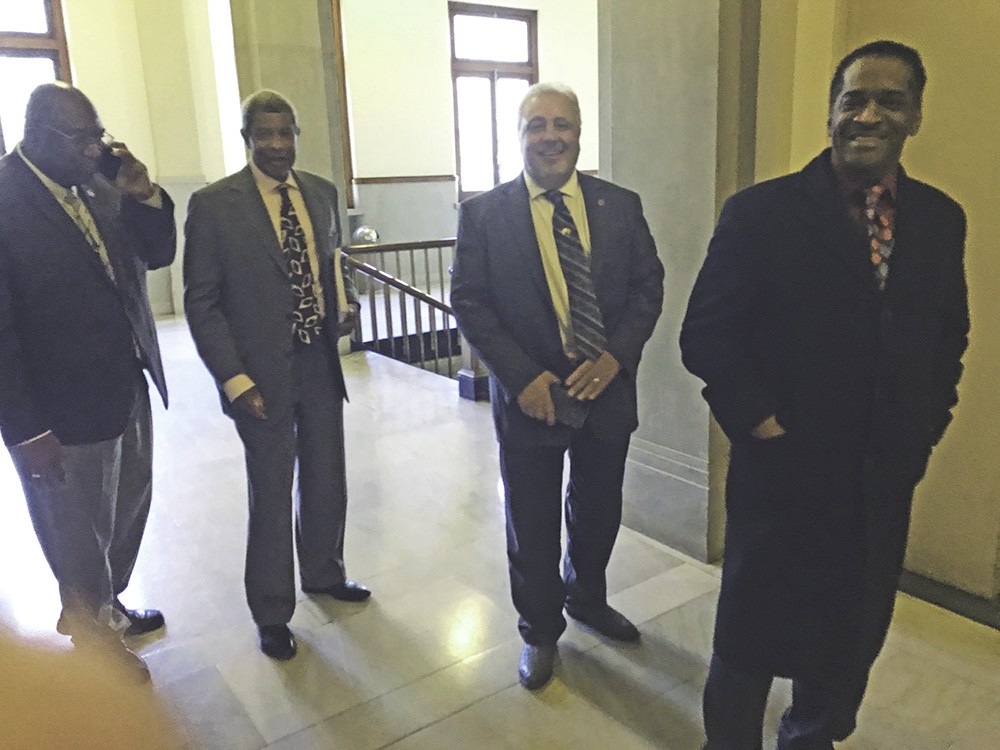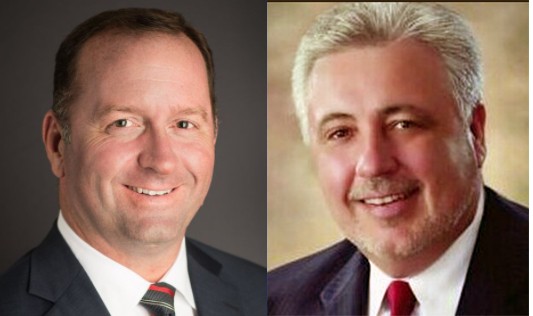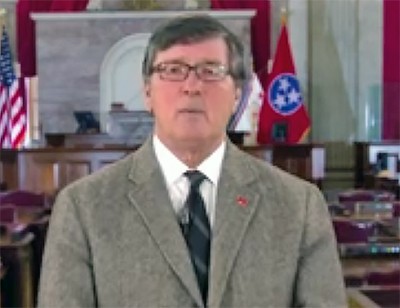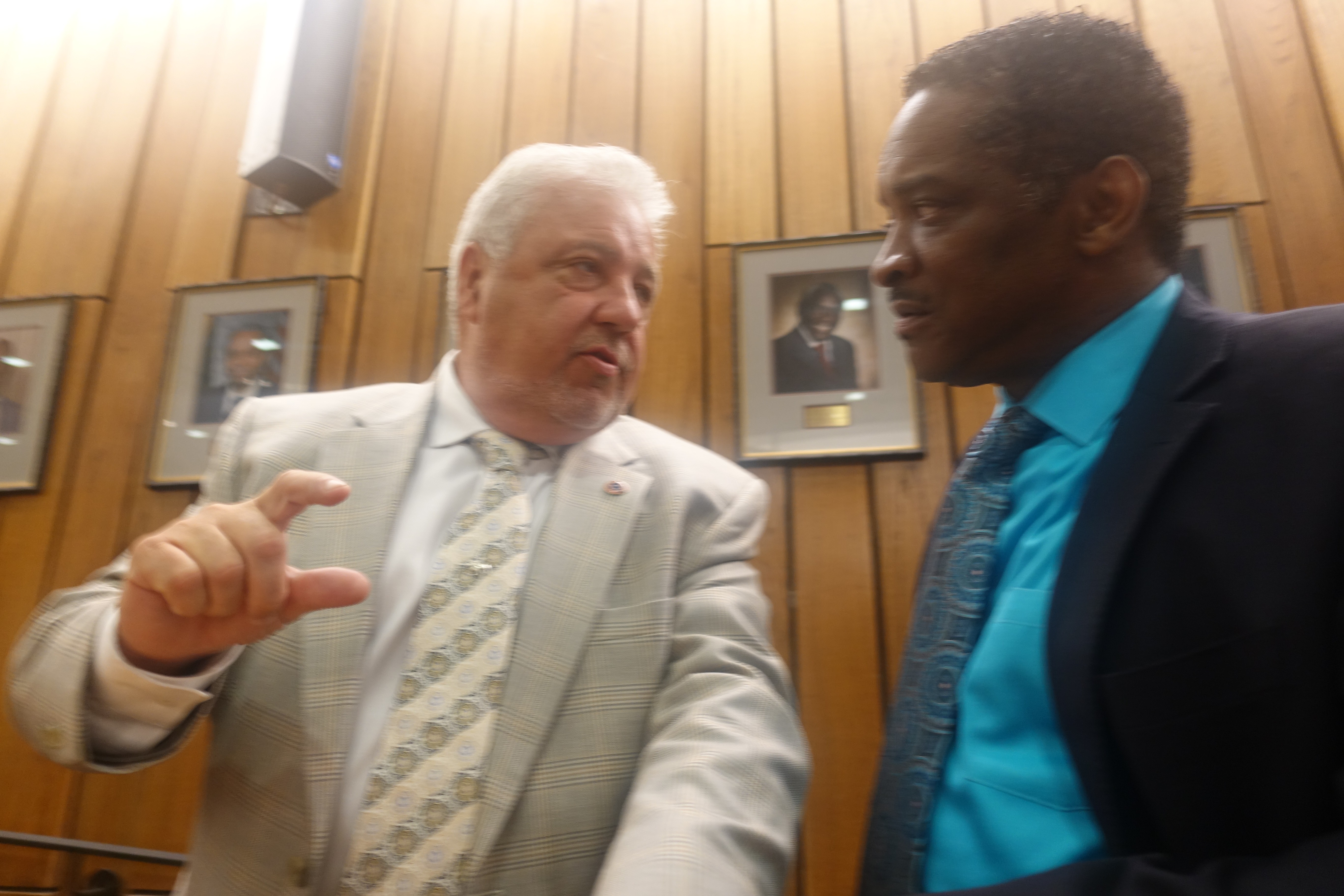The subject of education figured large at Monday’s meeting of the Shelby County legislative delegation at the Pink Palace.
One subject of accord between the attending legislators and representatives of the county’s various school districts was the need for the Tennessee Department of Education to comply with previously promised levels of funding under the state’s Basic Education Plan. Shortfalls in such funding have occurred routinely in recent years.
 Michael Donahue
Michael Donahue
Sen. Brian Kelsey
That was only one of the ways in which the Memphis-based Shelby County system and the six districts maintained by the county’s suburban municipalities — divided by a serious schism during the years of merger and de-merger of the past decade — have come to make common cause in matters of public education.
Another indication of the new comity figured in a surprise declaration by state Senator Brian Kelsey (R-Germantown) that, for the first time in more than a decade of trying, he will desist in the coming 2018 legislative sessions from his annual efforts to pass legislation authorizing school vouchers for private schools.
Residents of the Republican-dominated suburbs of Germantown, Collierville, Bartlett, Arlington, Lakeland, and Millington — all of which have hardened their commitment to public education by voting for school taxes — have made their own disaffection from the voucher concept increasingly clear. The point was underscored last year by a unanimous vote opposing vouchers by city and county representatives alike on the Shelby County Commission.
Further, chair Heidi Shafer communicated to legislators the will of the commission that the state Achievement School District remand back to the Shelby County School District’s iZone program the 31 under-performing county schools currently administered by the ASD, on grounds that the special state-run district established early in the tenure of Governor Bill Haslam has failed to improve their scores.
Another significant point of city-county unity on an education-related matter was expressed Monday by a unanimous vote on the commission to oppose county involvement in Haslam’s proposed State Facilities Management concept, an out-sourcing program. As Commissioner David Reaves said, “I’m confused. The state is swimming with surplus money. Why do they need to out-source?”
Prior to the commission’s vote, various citizens had testified about the prospective loss of jobs at the University of Memphis and other public entities under the governor’s program.
• Bill Giannini, who was killed in a car crash on Interstate 40 last Thursday afternoon, en route to Nashville after touching base with friends in Memphis at holiday gatherings, had in recent years been living in Mt. Juliet, a near suburb of the state capital. His choice of residence, made after his 2011 appointment by Governor Haslam to serve as deputy commissioner of Tennessee Department of Commerce and Insurance, was a practical one.
But native Memphian Giannini, who left that job late last year to seek the chairmanship of the state Republican Party and had meanwhile founded the Resolve Consulting Firm, was meditating seriously on a return home. For some months, he had been expressing keen interest in a race in 2018 for the District 32 state Senate seat which state Senate Majority Leader Mark Norris of Collierville, now a federal judge-designate, will be vacating.
In fact, when he first floated the idea of running for the seat last summer, at the time of Norris’ appointment, Giannini had made the case that he was the only serious candidate for the seat who had been raised in the east Shelby County area encompassed by District 32, and expressed concern that Norris’ successor might be someone who “hasn’t lived a day in the district.” (That was aimed at two likely candidates: Shafer and state Representative Mark White, each of whom has actively considered a move into District 32.)
In his time, Giannini had made a serious imprint on local politics, both as chairman of the Shelby County Republican Party a decade ago and later as chairman of the county Election Commission during a period of protracted controversy over the 2010 countywide election, which saw the members of a defeated Democratic slate challenge the results of that election, a Republican sweep.
Ironically, prior to that election, Giannini, foreseeing a Democratic wave that has still not occurred locally despite a theoretical Democratic majority in the county, had been among those Republicans arguing stoutly for a return to nonpartisan elections in Shelby County. At a Republican club meeting in November 2009, Giannini had joined with his then newly elected successor as GOP party chairman, Lang Wiseman, in advocating a reversion to the status quo before local Republicans took the initiative and held the first local partisan primary in 1992.
“Shame on us for initiating those … now we are left with that albatross,” Giannini bemoaned at that 2009 meeting.
Giannini was known as a stout partisan, though he had numerous friendships across party lines, one of them being nominal Democrat Jim Strickland, the Memphis mayor for whom Giannini had done some consulting work for of late and who would profess himself “shocked and saddened” at the news of Giannini’s death.
Giannini, who was in a band during his high school days in Bartlett, was a talented guitarist, a fact which he demonstrated some years ago from a local stage in an extended guitar duet on Lynyrd Skynyrd’s “Free Bird” with another unexpected virtuoso, former Arkansas Governor and erstwhile presidential candidate Mike Huckabee.
The accident that took Giannini’s life last Thursday occurred when his car swerved across a median into the westbound lanes of Interstate 40 in Decatur County, colliding with the car of Cordova resident Dennis Tolivar Jr., who was injured. It was the second fateful accident on I-40 for Giannini, who had been involved in a multi-car pile-up in December 2012 that resulted in a fatality.
Giannini was absolved of any responsibility in that accident by the state highway patrol.
 Jackson Baker
Jackson Baker  JB
JB  JB
JB 



 JB
JB